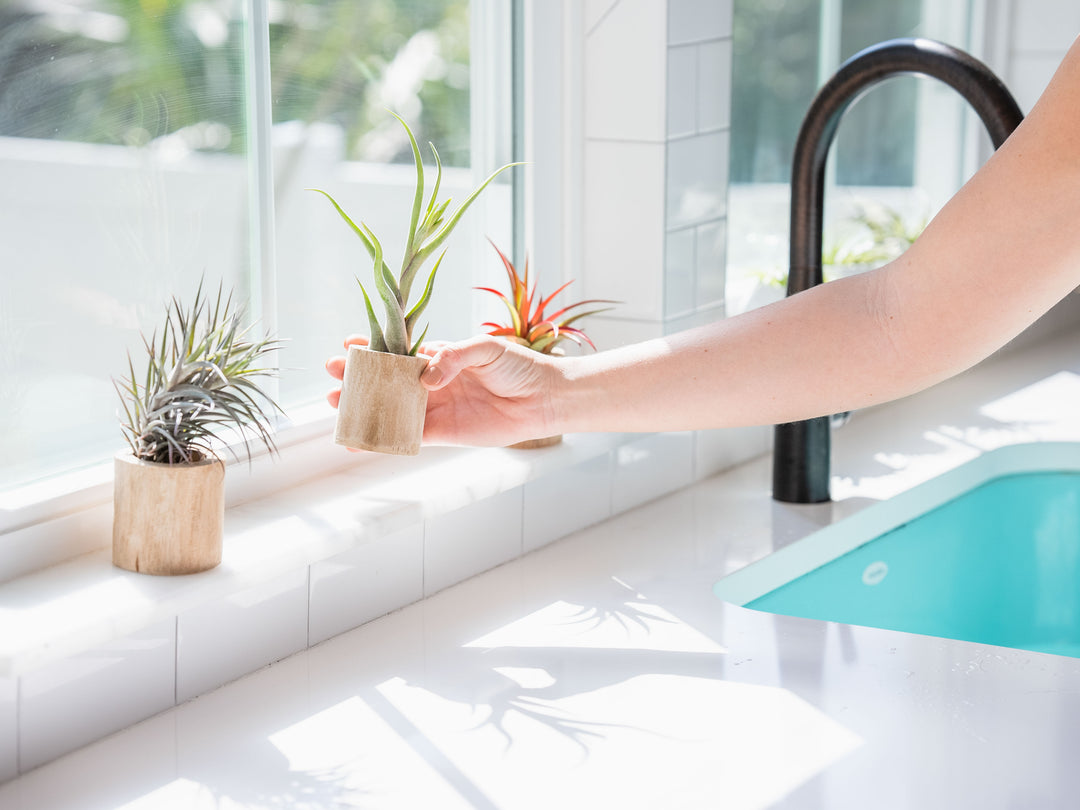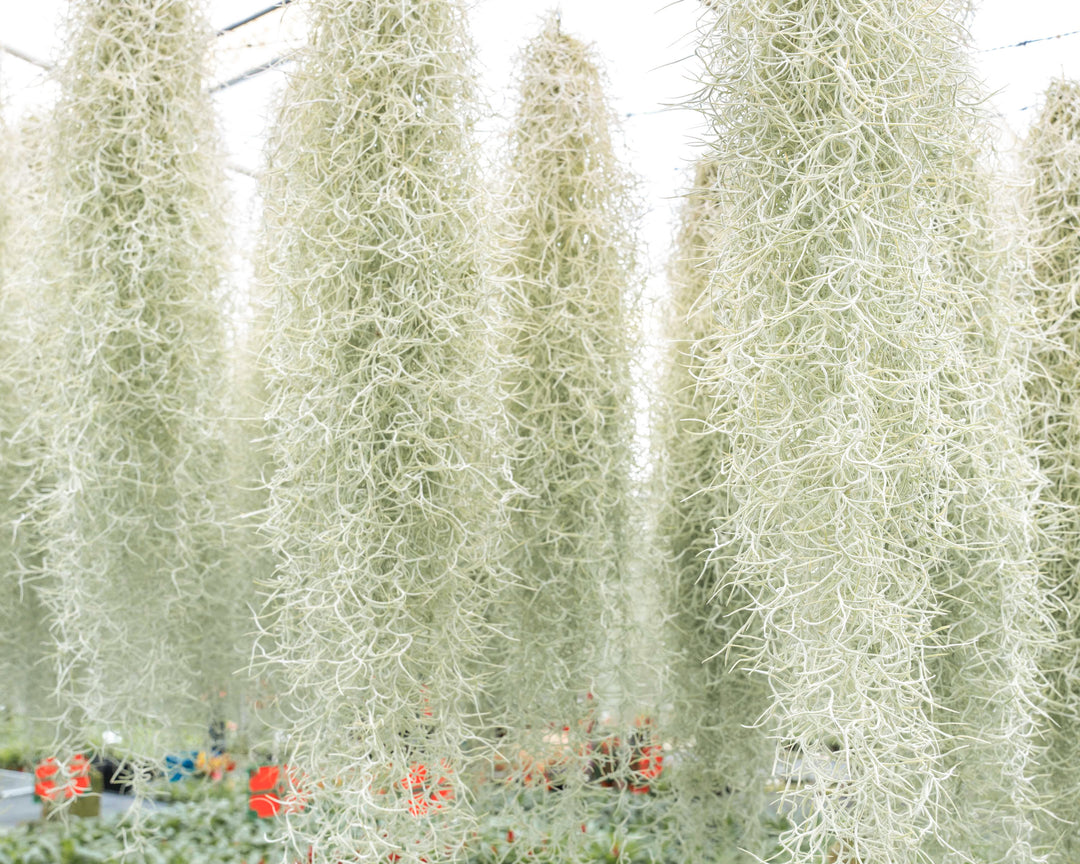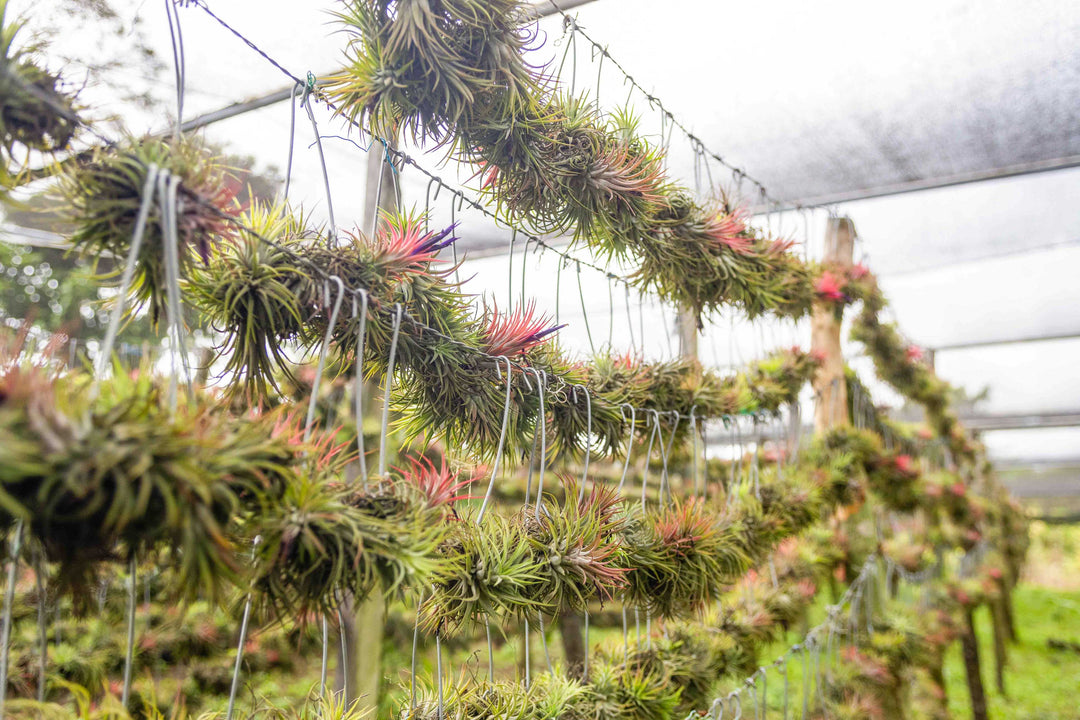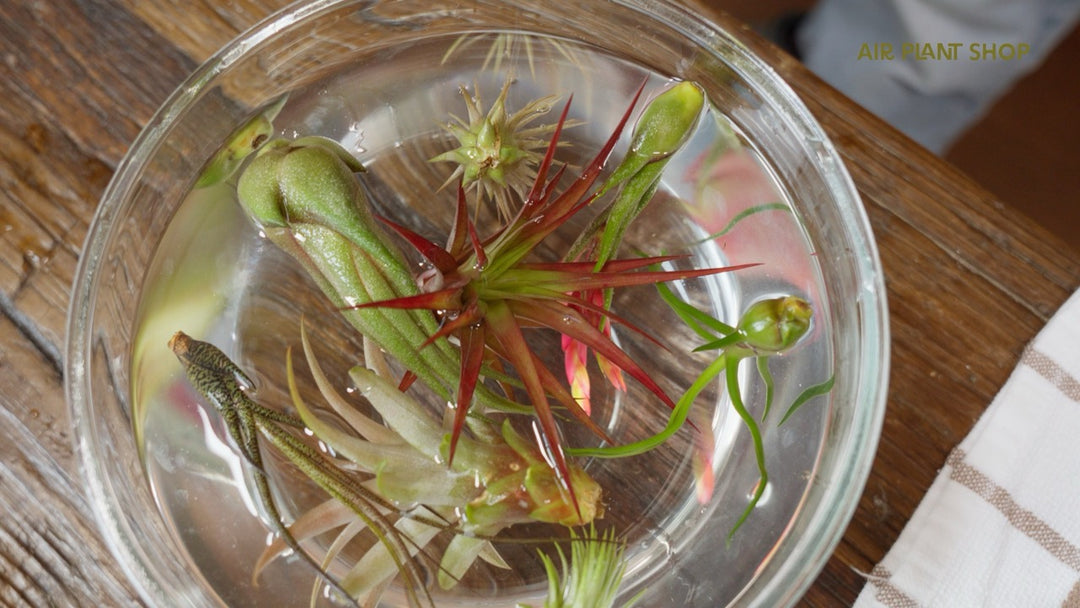
Winter Care for Air Plants
Tillandsia, aka air plants, are commonly used as houseplants year round but many people, especially Northerners, love taking their air plants outside for the warmer months. Since air plants are a tropical species, they need to be brought indoors when the nights start to fall below 40 degrees Fahrenheit. Don't forget or they won't survive the first frost! Once brought inside, your air plants will need some special attention to adjust to their indoor environment.
The main differences between the indoor and outdoor environments are temperature, humidity, light, and air circulation. Read on to learn our recommendations for winter care of air plants.
Temperature
Air plants thrive in temperatures between 65-85 degrees Fahrenheit. While they can survive below 65 degrees, they will not grow and thrive. They are exotic plants after all.
Our rule of thumb: if you are comfortable in your home, your air plants will be comfortable too! Not much to worry about here.
 Humidity
Humidity
Homes heated by forced-air furnaces, fireplaces, and radiators tend to be very dry in the winter. Imagine the extra amounts of hand cream that you need to keep your skin from cracking on a winter's day! Your air plants might also suffer under these dry conditions especially when they're used to nature humidity outside. To remedy, we recommend adjusting your watering schedule. Curling leaves and dry tips are signs that your air plants may need more winter moisture. Be sure to give their weekly water bath but you may need to supplement with an extra misting once a week. Avoid placing your plants near drafty windows, vents, and air returns. Placing a tray of water near your plants is another strategy for increasing the humidity!
 Light
Light
Your plants will still need bright light when indoors. Due to the lower sun angle, most plants tolerate brighter winter sun when they would be otherwise burned during the summer. Optimum conditions are within several feet of a south or west facing window. If natural light is limited, the next best option are fluorescent and grow lights since they provide "blue light" that is needed by plants. Be careful when displaying your plants near incandescent light bulbs since they can get very hot and burn the plants.
 Air Circulation
Air Circulation
As we generally recommend, do not place your plants in tightly closed or cramped containers. Air plants need fresh air to circulate to absorb nutrients as well as avoid rot from too much constant moisture.









I have just got my air plants. Was just reading how to take care of them.
I am a beginner with air plants, and struggling with my thin air plants. Thank you for the info.
Leave a comment